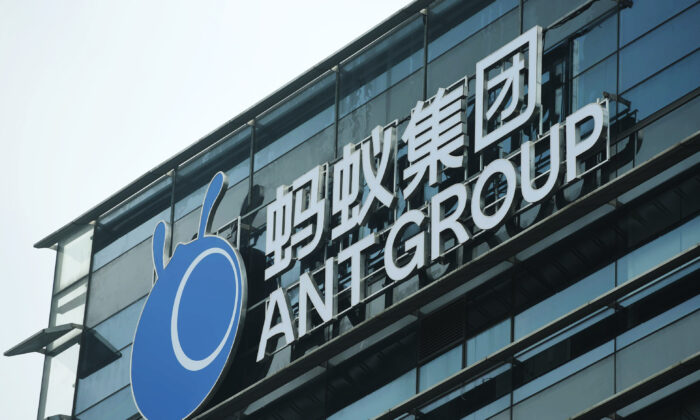Questioning the Universe With Wonderment: ‘Philosopher Lecturing on the Orrery’
WASHINGTON—Ant Technology Group, the parent company of China’s largest digital payment platform Alipay, is set to go public this year, even as the company’s ties to the Chinese Communist Party (CCP) could pose significant risks to U.S. investors.
Controlled by billionaire Jack Ma, founder of Alibaba, the Chinese financial technology company is preparing for an initial public offering (IPO) in Shanghai and Hong Kong.
Ant Group, formerly known as Ant Financial, is expected to raise more than $30 billion from the share sale, which could mark the biggest IPO of all time, surpassing the $29.4 billion public offering in December 2019 by Saudi Aramco.
The company recently faced scrutiny for underwriting its own IPO by offering retail investors access to its share sale through its Alipay platform. The company tried to exclusively allocate a portion of the shares to its clients—Alipay users—through five mutual funds, sidelining banks and brokerage firms.
That’s prompted China’s securities regulator to probe a potential conflict of interest, causing delays in the IPO.
In addition, the Trump administration may consider putting Ant Group on a trade blacklist known as the “Entity List” because of national security concerns, according to media reports. The move would restrict U.S. companies from doing business with the company.
The fintech giant also is raising concerns due to its technologies being used by the CCP and its People’s Liberation Army to oppress Chinese citizens.
Despite the national security and human rights-related risks associated with the company, the IPO has drawn substantial interest from U.S. investors. Americans will be able to access the company’s shares through emerging markets and international indexes.
Increased controversy in recent weeks, however, may affect U.S. investor appetite for Ant Group’s IPO, according to Roger W. Robinson, Jr., president and CEO of RWR Advisory Group, a Washington-based research and risk consultancy. Robinson also is a former chairman of the Congressional U.S.-China Economic and Security Review Commission.
“I think that the appetite of prospective Ant investors has been somewhat diminished by this Alipay self-dealing controversy and published reports that Ant appears headed for inclusion on the U.S. Entity List,” Robinson told The Epoch Times, adding there could be more official difficulties ahead for Ant Group.
“I think that investors may realize that the U.S. government is taking a hard look at the company, as the list of material risks with regard to national security, human rights, and personal privacy is not trivial.”
In several reports released in September and October, RWR Advisory addressed the risk profile of Ant Group, identifying seven problematic areas, including the roles played by Ant Group and Alibaba in severe human rights abuses.
For example, Ant Group and Alibaba are both investors in Megvii Technology, an artificial intelligence company that specializes in facial recognition technology. Megvii is known for its platform Face++, which has been a crucial tool in Beijing’s repression of Muslim minority populations in Xinjiang.
Megvii was sanctioned by the U.S. government and added to the Entity List in October 2019 for having been “implicated in human rights violations and abuses.”
In 2018, the Committee on Foreign Investment in the United States (CFIUS) blocked Ant Financial’s acquisition of U.S. money transfer company MoneyGram over national security concerns. The company is also a participant in building China’s controversial social credit system, which tracks every move and purchase of Chinese citizens.
EyeVerify Acquisition
Another risk identified by RWR Advisory is Ant Group’s acquisition of EyeVerify, a Kansas City, Missouri-based company, for $100 million following approval by the CFIUS in 2016.
The U.S. company, a wholly owned subsidiary of Ant Group, is now called ZOLOZ. The EyeVerify acquisition helped Ant Group to develop its own biometric technology capabilities, according to RWR Advisory.
EyeVerify created the “EyePrint ID” technology, which converts a picture of a user’s eyeball into a biometric security key. The EyePrint ID is used for millions of Americans by Wells Fargo and NCR Corp., which is a major technology provider of many sectors including financial, retail, hospitality, and telecommunications.
NCR provides online and mobile banking software to more than 15,000 regional banks and credit unions. Some of the institutions that use EyePrint ID through NCR’s Digital Insight platform include The Arizona Federal Credit Union, Portland-based Rivermark Community Credit Union, and New Hampshire-based Service Credit Union.
“The EyeVerify acquisition by Ant Financial in 2016, unwisely approved by CFIUS, may prove especially problematic due to the use of this biometric authentication technology by divisions of some large U.S. firms like Wells Fargo and NCR,” Robinson said.
Ant Group’s prospectus doesn’t disclose these material risks and potential U.S. sanctions on Ant Group and its subsidiaries, including that ZOLOZ could pose significant risks to Americans who invest in the company.
Alipay, owned by Ant Group, has 1.2 billion users, of which 900 million are Chinese customers. Its largest competitor, PayPal, by contrast, serves 346 million active users across 190 countries.
“If this IPO is the largest in world history, it will likely be touted by Beijing as a validator for their crackdown on the people of Hong Kong, a kind of referendum,” Robinson said.
Focus News: Controversy Surrounds China’s Ant Group Before Its Public Offering
Popcorn and Inspiration: ‘High Noon’: A Moving Western About Standing Up for What’s Right
